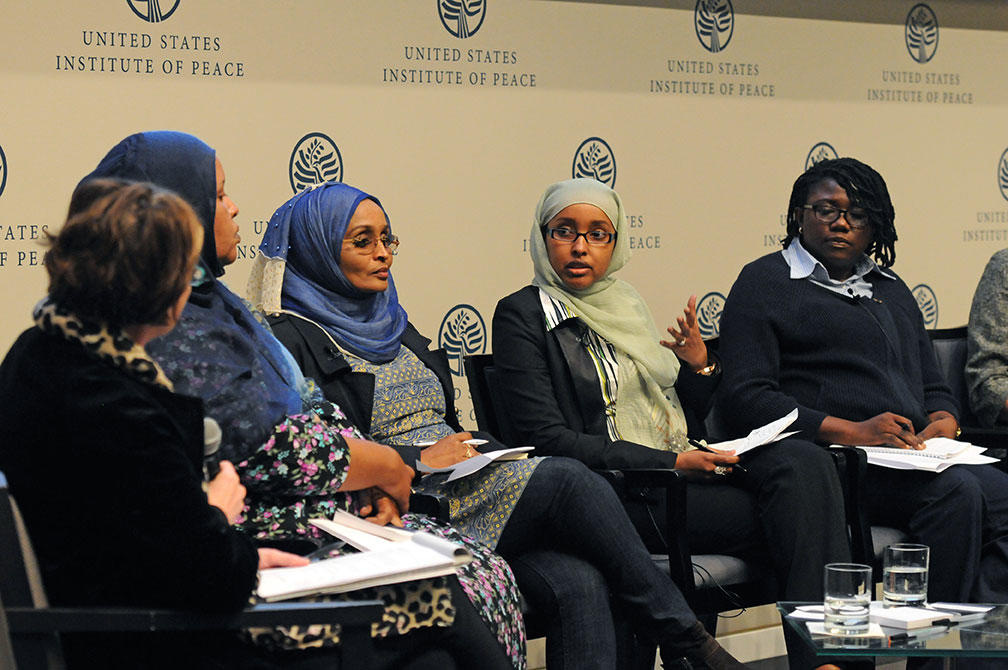The Women Preventing Extremist Violence pilot project (2012-2017) was designed to increase women’s agency, influence and engagement in strengthening community level resilience to violent extremism in Kenya and Nigeria.
Women Preventing Extremist Violence (WPEV)
Through a training program and facilitated dialogues, USIP’s staff worked with in-country partners to bring together representatives of women civil society and the security sector in an exploration of the local drivers of violent extremism, and potential strategies for prevention and improved collaboration.
Please visit USIP’s Women Preventing Violent Extremism in the Horn and Sahel project page for information on the new iteration of the program.

Events
Women and Countering Violent Extremism Strengthening Policy Responses and Ensuring Inclusivity
In July 2015, experts from civil society, the United Nations, academia, and the U.S. government discussed ways to include women in efforts to counter violent extremism. The debate directly informed U.S. government officials preparing for major international conferences on these issues in fall 2015.
Women Preventing Violent Extremism: Charting a New Course
In celebration of International Women's Day, the U.S. Institute of Peace hosted a meeting of 12 women civil society leaders from India, Indonesia, Kenya, Nigeria, Pakistan and Tanzania on Friday, March 6.
The Thought for Action Kit

Women Preventing Violent Extremism
A collection of experts’ essays and exercises designed to help guide activists and practitioners to engage in reflection and dialogue on violent extremism.






